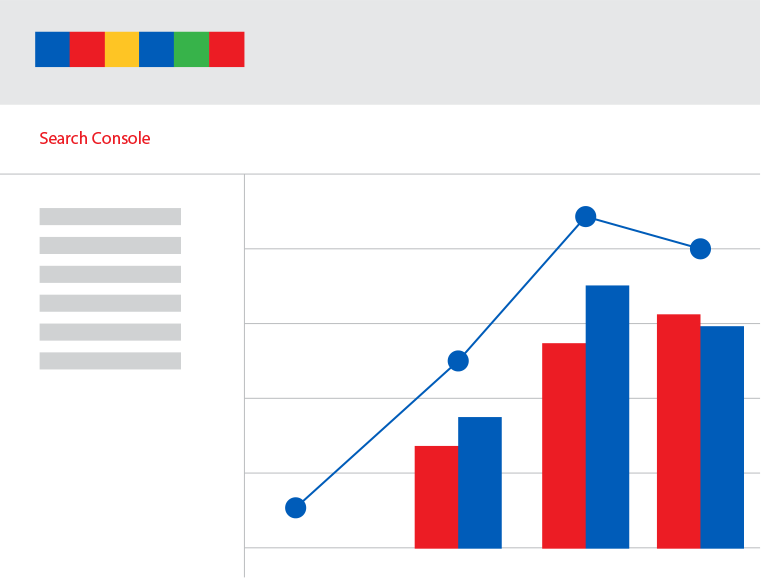GET OUR 2025 PRICING SHEET
HOW TO DO KEYWORD RESEARCH
- A Comprehensive Guide | 2023 -
WHAT IS KEYWORD RESEARCH?
Keyword Research
/ kē•werd rē•serch / noun.
Keyword research (also known as SEO keyword research or keyword analysis) is the process of identifying the terms and phrases people enter into search engines to find relevant websites and pages. Search engine optimization (SEO) specialists uncover these keywords and key phrases to find out how to attract visitors to a target website. At Page One Power, we include this process in our SEO link building services. We also have a useful guide on choosing the right SEO company.
Keyword research is a specific type of consumer research that's focused on how consumer behavior influences SEO strategy.
This research informs content marketing and web page creation by exposing potential gaps — as well as opportunities — for site owners. Creating relevant pages and optimizing them for the ways people search (keywords), can lead to improved rankings in the search results for those keywords, increasing search visibility and web visitors.
Keyword research can also influence paid search or SEM by identifying cost-per-click (CPC) and calculating the cost of potential bids for certain key terms and phrases, assessing how that fits within your pay-per-click (PPC) budget.
WHY IS KEYWORD RESEARCH IMPORTANT FOR SEO?

Keyword research is a core SEO practice because it helps you understand how and why people come to your website, how your competitors attract visitors, and generally how — and how often — your audience searches online.
Analyzing keywords and identifying search trends will help you build pages that best serve the needs of your audience by providing the information they’re searching for and solving their problems.
Keywords are fundamental to how search engines work — searchers type keywords into search engines and search engines return pages that, based on their algorithms, are the best results for those keywords. Keep in mind that these search results include individual pages.
This is important to note because pages — rather than entire websites — rank for keywords, and any given page can rank for thousands of variations of keywords. Understanding which keywords searchers use and how they use them is instrumental to ranking in search.
Keyword research will dictate SEO strategy and content creation. Every new page you build on your website should be influenced by insights from keyword research.
Keyword research informs:
- Topic focus for website copy.
- Product/service development.
- Content design and formatting.
- Onpage and technical SEO decisions.
- Offpage optimization and link building.
- Search competitor analysis and identification.
- New page creation and existing page updates.
Effective keyword research guides optimization, bolstering current traffic sources and identifying opportunities for new channels.
Organic search traffic doesn’t happen by accident — organic traffic comes from a real person typing keywords into Google and finding your page within the search results (typically the first or second result). Of course, you don’t want to rank for just any keyword — you want to rank for keywords that drive qualified traffic to your site and impact your business.
Furthermore, customers and clients often think about your product or service differently than you and your colleagues, and could use a completely different set of keywords to search for your product than what you might assume. Keyword research will help you identify these “hidden” terms and ensure you’re not missing opportunities to show up when your customers are looking for you. Thankfully, there are a variety of tools available, designed to assist in keyword research.
If you want to be there when potential customers are searching, you need to first understand how they’re searching and with what keywords. From there, you can target those terms with strategic pages, executing thorough SEO keyword research.
That’s a quick and dirty explanation of keyword research and why it is so critical to SEO. Let’s take a deeper dive into the world of keyword research.
Note: If you’re still trying to find the right keyword research tool, you can jump to the bottom of this guide to learn more about the tools available.
UNDERSTANDING IMPORTANT KEYWORD ATTRIBUTES.

To find the right keywords for your website, you must understand the important metrics associated with keyword analysis.
Building a list of seed keywords provides the baseline for your keyword research, but you need to analyze these key terms and phrases to identify your best opportunities. Keyword analysis means scrutinizing keywords in regards to the following attributes:
- Keyword type
- Searcher intent
- Search volume
- Keyword difficulty or competition
- Associated SERP features
Each of these factors influences the search opportunity associated with a given keyword.
KEYWORD TYPE.
There are different types of keywords, and it’s important to understand which type of keyword you’re targeting because each one can serve different purposes within your strategy.
The three types of keywords are: head, body, and long-tail terms.
HEAD KEYWORDS
- Single word
- Top of the sales funnel
- Low conversion rate
- High volume
- High competition
BODY KEYWORDS
- 2-3 words
- Middle of the sales funnel
- Mid-level conversion rate
- Medium volume
- Moderate difficulty
LONG-TAIL KEYWORDS
- 4+ words
- Bottom of the sales funnel
- High conversion rate
- Low volume
- Low difficulty
DID YOU KNOW:
Each type of keyword fits within a different part of the sales funnel and should be a part of a comprehensive SEO keyword strategy.
SEARCHER INTENT.
Searcher intent is becoming increasingly important for organic search.
What is searcher intent? Searcher intent describes the “why” behind a person’s search query and what their intended goal is for that search. Searcher intent is commonly categorized into four different buckets:
- Informational- Queries that focus on finding specific information or answers.
- - Example: [what is keyword research?]
- - Example: [what is keyword research?]
- Navigational- Queries that typically involve brand, product, or service names and are used to find a particular website or page.
- - Example: [Page One Power keyword services]
- - Example: [Page One Power keyword services]
- Commercial- Queries that inform purchasing decisions but aren't directly tied to conversions, and often involve comparisons.
- - Example: [best keyword research services]
- - Example: [best keyword research services]
- Transactional- Queries that are directly associated with purchasing.
- - Example: [Page One Power keyword service price]

Understanding the search intent associated with keywords will help you determine what types of traffic you could potentially capture if you ranked for those terms, as well as the impact it could have on your business. Searcher intent also informs page optimization or creation — and you need to ensure your page matches intent, if you hope to rank in organic search.
SEARCH VOLUME.
Search volume is a bit more straightforward.
Search volume is typically reported as monthly search volume, or the number of times someone searches a keyword in Google per month. This metric essentially tells you the traffic potential associated with a given keyword, so you can see the number of people interested in that topic and estimate the number of visitors brought to your site by that associated ranking. Since pages rank for multiple keywords and keyword variations, the actual organic traffic potential is often much higher than the search volume for the given keyword you are targeting.
KEYWORD DIFFICULTY.
Keyword difficulty is an important metric in keyword analysis because it measures competition levels.
You need to understand keyword difficulty because competitiveness determines how much investment will be required to rank for the corresponding key term. Unless you’re a major brand, you’ll have to accept that you simply won’t be able to compete for some of the ultracompetitive keywords associated with your business. However, you can find potential quick wins if you identify relevant, low difficulty keywords.
Keyword difficulty can be calculated using an SEO tool, or you can manually review difficulty by analyzing the search results and the quality of the pages currently ranking.
ASSOCIATED SERP FEATURES.
Search engine results page (SERP) features should be a consideration during keyword analysis because they dictate structure, formatting, and design for your pages.
If you want to rank for a particular keyword, you need to look at the actual SERP for that term and see which features are present. Being aware of these features empowers you to optimize your pages for them and take control of the prominent SERP features associated with your keywords.
Potential SERP features include:
- Rich snippets
- Local Carousel
- Maps
- Reviews
- Knowledge Panel
- Images
- Videos
- In-depth articles
- News box
- Advertisements
If you see videos and images in the SERPs corresponding to your keywords, you’ll likely need to embed videos or images on your pages to compete. If a target keyword’s SERP returns a rich snippet, you know that your page will need to provide a quick, concise answer to serve the intent of that keyword.
Search results continue to evolve, and you must understand which SERP features are associated with your keywords.
HOW TO START KEYWORD RESEARCH.

Understanding the important attributes and criteria by which to analyze keywords is important, but how do you actually get started with SEO keyword research?
The best starting point for keyword research is to analyze your website and evaluate the keywords you already rank for.
Understanding where you’re already succeeding in search influences goal creation, highlights existing and potential opportunities, and provides a frame of reference for future success.
Analyzing your current website performance will help you set realistic and achievable goals, because it helps you better understand your place in the market. Are you already ranking for the majority of terms associated with your product or service? Are you losing out on every keyword and practically invisible in search? Or, most likely, are you somewhere in the middle?
A great place to start is with Google Search Console. This is a free tool from Google that will provide you with the following information:
- Queries that drive the most clicks to your website
- Pages ranking for specific queries
- Average search positions for your pages
- Average click through rate (CTR) on your pages
- Devices used to search.
- Etc.

Google Search Console has a wealth of information about your site’s search performance, and it is the first place you should go to analyze your keywords.
Knowing where you are (and aren’t) ranking already provides a starting point for keyword research. You can identify “near-miss” opportunities where you’re ranking just off page one for relevant keyword themes. You can also find keyword gaps that need to be addressed by new content on your site. Regardless of the situation, you should start with where you’re already ranking and extrapolate from there by building a list of seed keywords.
BUILDING A LIST OF SEED KEYWORDS.

After you fully understand how your site is currently performing, you can start to build a seed list of keywords and phrases.
A keyword seed list consists of the base or foundational keywords relevant to your website and business. This list will serve as a springboard for all of your keyword research, so it’s important to be thorough as you compile these key terms. There are a number of ways to uncover seed keywords:
- Consider all terms directly associated with your product or service.
- Explore related search terms on Google.
- Examine searcher intent.
- Analyze competitor keywords.
- Research niche topics.
Combine a few of these methods to build a strong keyword seed list. For example, if I were building a seed list for this keyword research guide, I would start with the head terms directly associated with “keyword research”
- [keyword research]
- [keyword search]
- [SEO keywords]
- [keyword analysis]
From there, I could research related keywords, examine the search results to better understand intent, and analyze which keywords — for competitors' sites and my own site — are already ranking.
Building a seed list of keywords gives you a foundation to work from as you expand and refine your keyword research.
GROUPING KEYWORDS BY OPPORTUNITY.

Once you’ve built a seed list, you can evaluate keywords and determine the true opportunity associated with each. Some keywords may have large monthly search volumes, but the opportunity is actually low because the competition level is so high you won’t be able to compete.
Conversely, low-volume terms may provide opportunities to rank quickly and start earning traffic
Taking all criteria into account, you can group your keywords into three groups: high opportunity, medium opportunity, and low opportunity.
High-Opportunity keywords
- Long-tail or body keywords
- Informational, commercial, or transactional intent
- Low to medium competition
- Medium to high search volume
Medium-Opportunity keywords
- Body keywords
- Informational or commercial intent
- Medium competition
- Low to medium search volume
Low-Opportunity keywords
- Head keywords
- Informational or navigational intent
- High competition
- Medium search volume

Grouping your keywords into these buckets will help you suss out the best opportunities to earn more search traffic. You can further prioritize the high-opportunity keywords by analyzing them through two lenses: how do these opportunities align with your overarching business goals, and what is the required resource investment to pursue these opportunities?
The best opportunities will serve larger business goals and be found on the path of least resistance.
CREATING SEO KEYWORD RESEARCH REPORTS.

Once you’ve done the legwork of collecting, analyzing, and prioritizing SEO keywords, you need to compile your findings into a keyword research report.
Keyword reports are important for communicating your findings to your team, company, or client. These reports will help you obtain buy-in from upper management, as well as inform other important stakeholders. An example keyword report would include:
- Executive summary
- Key takeaways
- Methodology
- Exported keyword lists
Executive summary
The executive summary is the most important part of your keyword report — this is your opportunity to speak directly to the metrics and KPIs that are important to upper management. You should speak to high-level strategy, estimated timelines, and key projections.
Typically, the people who focus on this section are less savvy in SEO, so avoid getting too far in the weeds with your executive summary.
Key takeaways
The second most important portion of your keyword report is the 'takeaways section'. Some of the information you might include here would be:
- Successful competitor strategies and tactics.
- High-priority search opportunities.
- Potential resource requirements.
- Etc.
Again, these takeaways should be presented from an overview perspective.
Methodology
This section is included to support your findings and demonstrate the merit of your keyword research. You should explain your methodology in detail to ensure buy-in and understanding from other internal stakeholders, especially if you’ll need collaboration from these people to execute on the keyword opportunities you find.
Exported keyword lists
Don’t forget to include your actual research in a keyword report.
After you’ve pulled out and presented the high-level takeaways, you need to share your (filtered) keyword data. These lists should include all the keyword metrics that are important to your SEO strategy, such as: search volume, keyword difficulty, organic CTR, searcher intent, etc.
Professional, clean keyword reports are necessary for both client and in-house keyword researchers to ensure the rest of your team (or client’s team) is invested in carrying out your SEO keyword plan.
ADVANCED KEYWORD RESEARCH TECHNIQUES.

Beyond the basic process outlined here, there are also more advanced techniques for finding keywords for SEO.
If you’re interested in these more advanced techniques, check out the following in-depth guides:
- Advanced Keyword Research
- TF-IDF
- NLP
KEYWORD RESEARCH GLOSSARY.

There are a number of complex terms and phrases associated with keyword research that you might not be familiar with. To ensure you understand everything discussed in this guide, and anything you encounter in further keyword research, you can review this keyword research glossary.
Chunky middle keyword - A type of SEO keyword which is usually two to three words and serves a mid-sized audience.
Click-through-rate (CTR) - The percentage of people who see your page in the search results and then click through to visit your website.
Co-occurrence - Keywords or phrases that have an above-chance frequency of occurring alongside each other in a certain order. In SEO, co-occurrence refers to the frequency of occurrence and close proximity of similar keywords across the web.
Cost per click (CPC) - The actual price a paid search advertiser pays each time their ad is clicked by searchers within a PPC campaign.
Entity search (also: Semantic search) - Entity search (also: Semantic search)
Fat head keyword - An SEO keyword that is typically one or two words and targets a large, broad audience or market.
Keyword density - The amount of times (represented by a percentage) a specific keyword or phrase appears on a given web page.
Keyword stuffing - A spammy technique that involves over-optimizing the keyword density on a page by repeating an SEO keyword more times than is natural, to the point where the page is barely readable by human visitors. E.g. Blue widgets are helpful because blue widgets are the best widgets. If you need blue widgets, contact us for blue widgets.
Latent semantic indexing (LSI) - a mathematical method for retrieving and indexing information, which uses singular value decomposition (SVD) to identify relationships between the concepts within text.
Long-tail keyword - A type of SEO keyword which contains four or more words and focuses on a narrower, more specific audience
Pay-per-click (PPC) - A form of search advertising where the advertiser pays the ad platform every time their advertisement is clicked by searchers.
Monthly search volume (MSV) - Represents the average monthly searches for a given search term in the previous year.
Natural language processing (NLP) - A portion of computer science that focuses on the interactions between computer and human languages, and how computers analyze natural language.
Searcher intent - The reason or “why” behind a search query, referring to the goal the searcher wants to accomplish. There are four types of searcher intent: informational, navigational, commercial, and transactional.
Search query - The query or question that users enter into a search engine to find the web pages they are looking for. There are four main types of search queries: informational, navigational, commercial, and transactional.
Seed keywords - Baseline or foundational SEO keywords related to your business or website.
Structured data - A way of organizing and categorizing your content that makes it easier for search engines to index your pages.
Term frequency-inverse document frequency (tf-idf or TFIDF) - A numerical value that reflects the importance of a word or term within a document or collection of documents.
KEYWORD RESEARCH TOOLS.

Before you dive into keyword research, it helps to have a tool on hand to assist with the process. There are a variety of tools available, and what will work best for you depends on your budget and needs.
Here are some of the best options around — free, freemium, and paid alike.
Free SEO Keyword Tools.
If you don’t want to invest in a paid keyword tool before familiarizing yourself with the keyword analysis process, there are a variety of keyword research tools that are free.
Keywords Everywhere
https://keywordseverywhere.com/Keywords Everywhere is an extension (for Chrome or Firefox) that provides search volume, CPC, and competition data within the interface of your keyword research tool.
Keywords Everywhere supports the following sites and tools:
- Google Search Console
- Google Analytics
- Google Keyword Planner
- Youtube
- Amazon
- eBay
- Etsy
- Majestic
- Moz
- and more...
Keyword.io
https://www.keyword.io/Keyword.io is a free tool that provides relevant long-tail keyword suggestions for any seed keyword you enter. These keywords are pulled from the autocomplete functions of high-profile search engines and other platforms. Platforms such as:
- Bing
- Yandex
- Amazon
- eBay
- Alibaba
- Wikipedia
- and more...
SERPs Keyword Research Database
https://serps.com/tools/keyword-research/SERPs.com is an SEO software provider, and they offer a free keyword research tool in the form of their Keyword Research Database. You can enter a seed keyword and receive relevant keyword suggestions, including search volume, CPC, and “value” (volume x CPC).
Freemium SEO Keyword Tools.
If you have a small budget for SEO and keyword research, you may want to look into “freemium” or partly-free keyword tool options.
Google Keyword Planner
https://adwords.google.com/home/tools/keyword-planner/Technically, Google’s Keyword Planner is “free”, but you won’t be able to access the valuable information it provides without running a paid search campaign through Google AdWords. Keyword Planner offers related keywords, and estimates for CPC and search volume. Because search volume numbers are estimates and grouped by keyword, it can be difficult to get precise data.
SERPWoo’s Keyword Finder
https://www.serpwoo.com/keyword-research/SERPWoo’s Keyword Finder will pull the top ten domains for any given keyword you enter into the tool. Keyword Finder will then also generate related terms, and allow you to create and export custom lists.
However, without a paid account, you’ll only be able to track three keywords.
Keyword Discovery
https://www.keyworddiscovery.co.ukKeyword Discovery provides keyword data from a large database of over 200 search engines across the globe. The tool will provide related keywords, historical trends, search competitors, PPC bid values, and more.
A free subscription provides most of the same features as a paid plan, but limits your number of projects to 20.
PAID SEO KEYWORD TOOLS.
If you really want to invest in thorough keyword research — and you must, to be successful in search — you should purchase one of the numerous paid keyword tools.
Moz Keyword Explorer

Keyword Explorer is part of Moz’s suite of SEO tools, and the tool offers a variety of ways to analyze SEO keywords. You can search by keyword, domain, subdomain, or page.
Keyword explorer provides a wealth of information, including: monthly search volume, keyword difficulty, organic CTR, and keyword priority (based on all other metrics). Keyword Explorer even lets you assign your own score for each keyword. You can create custom keyword lists within Keyword Explorer and they are exportable via CSV.
The “keyword priority” function of the tool can be especially helpful as it can save you time manually by pointing out which keywords have potential for the most impact. Starting with these high-potential keywords can be powerful as you’ll be able to show results quicker, proving efficacy of your keyword research, and obtaining buy-in from important stakeholders.
To learn more about Moz’s Keyword Explorer, check out these resources:
- Moz Help Hub: Guide to Keyword Explorer
- Moz’s Keyword Explorer (KWE) Walkthrough - Tutorial Tuesday
- Test Driving the New Keyword Explorer Tool from Moz
Ahrefs Keywords Explorer

Ahrefs offers a helpful tool for keyword research called Keywords Explorer. Their tool lets you enter up to 10 seed keywords to generate thousands of related keyword ideas. The tool also provides important keyword metrics like search volume, difficulty, and traffic potential.
Keywords Explorer also offers advanced metrics such as return rate, clicks per search, and the percentage of paid clicks.
Perhaps most valuable is the fact you can conduct competitor keyword research in Ahrefs, which will help you better understand how your competition is succeeding in search. You can also review which keywords you already rank for en masse, which will help you better understand your own site.
Since Ahrefs also offers comprehensive link data, it is a strong candidate if your budget only allows for one tool.
Read these resources to learn more about Ahrefs’ Keywords Explorer:
- Keywords Explorer 2.0 by Ahrefs: Setting new standards for keyword research
- How to do Keyword Research Using Ahrefs
SEMrush

SEMrush includes a wide-ranging tool set along with keyword research. SEMrush’s keyword tool will measure keyword difficulty and let you compare keywords on a domain vs. domain basis. You can visualize this data into charts for deeper comparison.
SEMrush’ Keyword Magic Tool generates related keywords, and allows you to group, prioritize, and export top keywords.
SEMrush is particularly useful for competitive keyword research. Within the ‘Organic Research’ tab of SEMrush, you can find where your competitors are ranking and uncover which keywords are driving the most traffic to their sites. This is invaluable information as you can learn exactly which keywords are attracting the attention of your competitors’ audience (also known as your audience).
To learn more about all the valuable ways you can leverage SEMrush’s data, check out these resources:
- How to do Keyword Research with SEMrush Keyword Magic Tool
- Keyword Research with SEMrush: Helping Clients Win in Search
- Automating and Scaling Keyword Research through SEMrush
In order to make good, strategic decisions about keyword research, you’ll likely need one of these paid tools. You need to understand how your competitors are winning in search, how often your audience searches for certain keywords, which pages are ranking for various keyword themes, and the ability to categorize your keywords. All of this research becomes much, much easier if you have a quality keyword research tool.
FINAL THOUGHTS AND FURTHER READING.

Keyword research is fundamental to succeeding in search.
Effective keyword research will help you better understand your customers, competitors, and your marketplace online. If you want more people to come to your site, the first step is identifying how your audience searches online.
Search engines direct the overwhelming majority of traffic online, and keywords are the tools people use to tell search engines what they’re looking for. There are allegedly 200+ different ranking factors that influence search rankings, but none of those matter if you don’t understand how your audience finds information and solves their problems — this is why keyword research is so important.
If you’re still hungry for more information on SEO keyword research, I highly suggest reading these excellent resources:
THANKS FOR READING, AND GOOD LUCK WITH YOUR RESEARCH!
Services
Resources
Contact Us
We believe in helping businesses find success in search.
Through our partnerships, we help you acquire more business with sustainable link building and strategic content.
Better Links. Better Content. Better Service. Page One Power.
7154 W State Street, Suite 325
Boise, ID 83714

x
2025 PRICING SHEET
Every website is unique. Our link building campaigns are tailored to your specific SEO needs to ensure we utilize the best tactics for your site. In addition, each campaign comes complete with a dedicated project manager who provides full transparency throughout the entire campaign.
Fill out the form to get Page One Power’s 2025 Pricing Sheet to learn more about our services and pricing.
Copyright © 2025 Page One Power. All rights reserved.
